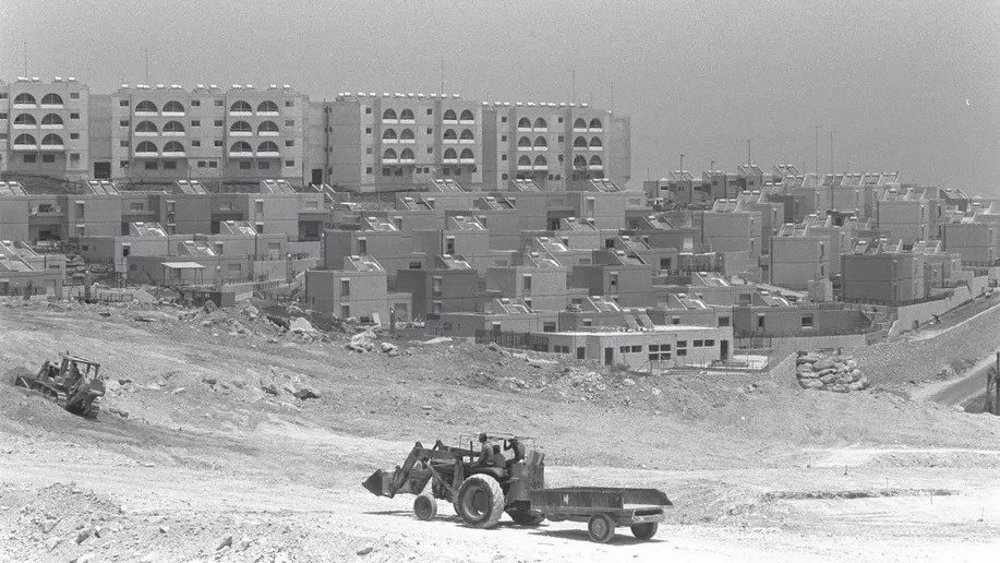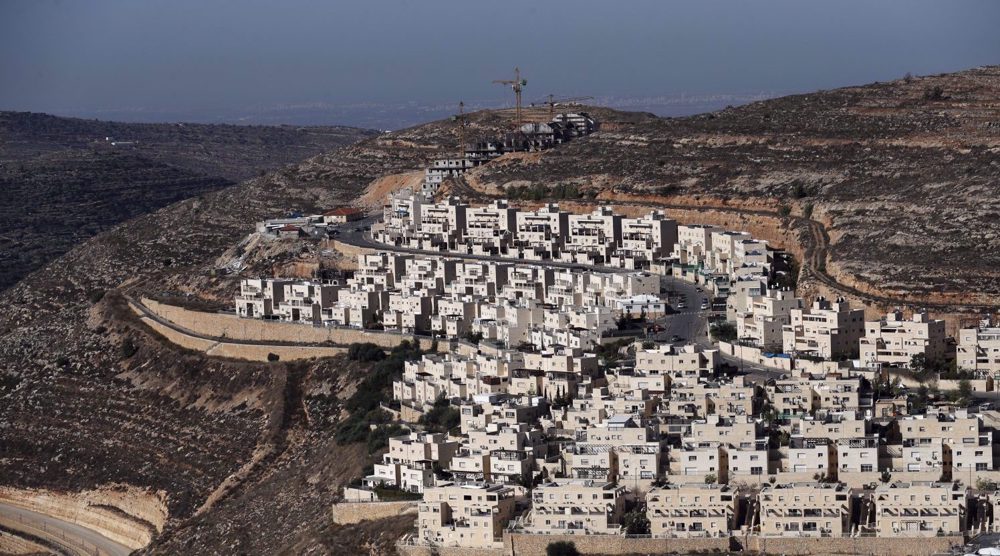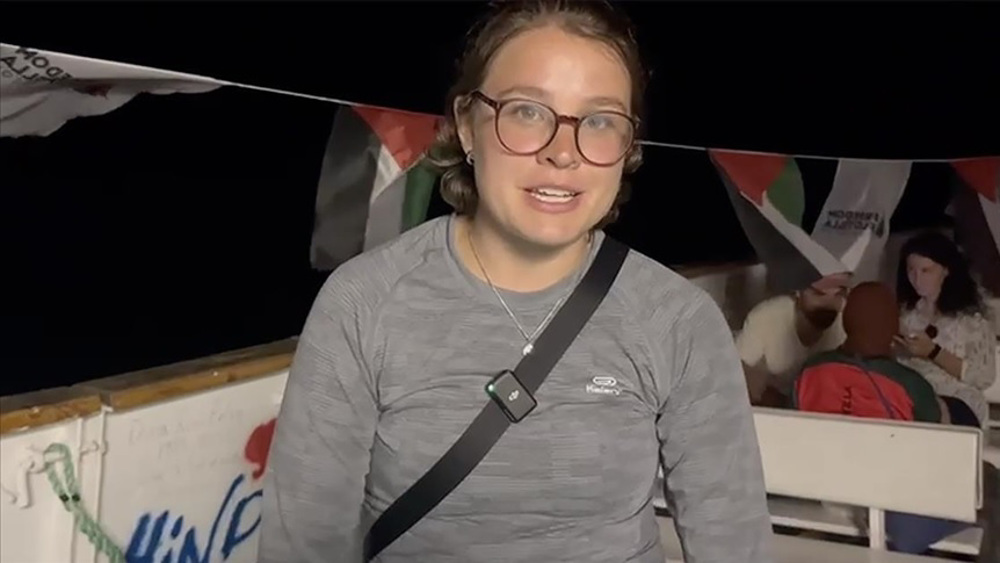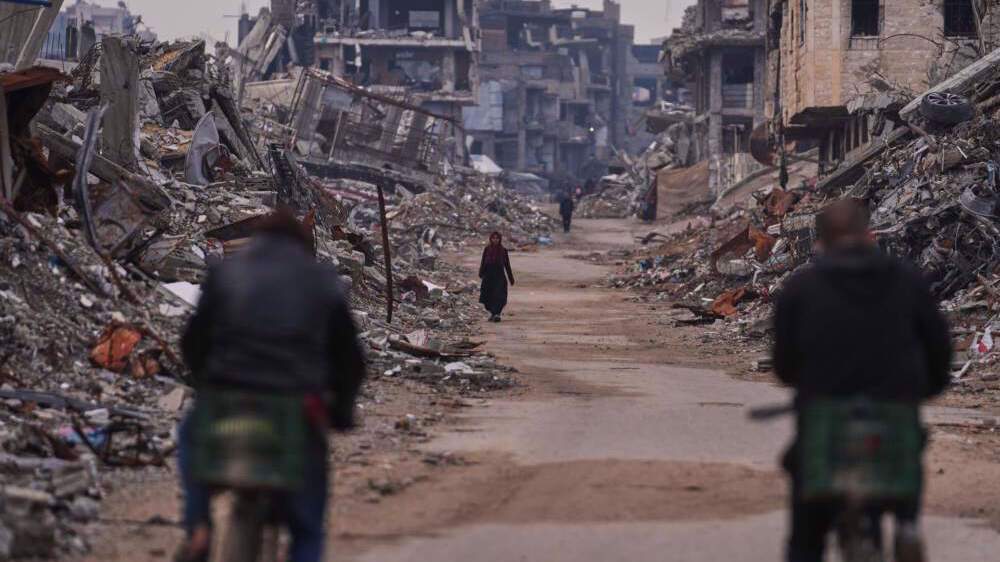Israel used ‘toxic’ chemicals to destroy Palestinian lands to build settlement in 1970s: Docs
The Israeli regime used “toxic” chemicals in Palestinian agricultural lands in the 1970s to destroy their crops with the aim of constructing new settlements in the occupied West Bank, according to newly-revealed documents.
The revelation was made in documents and records from a database run by the Jewish Settlements Archival Project, which deals with the inner workings of the Israeli cabinet and military during the early years of the settlement project.
The documents, which revealed each step in the establishment of Gitit settlement in the West Bank from planning to execution in 1972, said the first move was dispossessing residents of the nearby Palestinian village of their land under the false pretext of making it a military training zone despite strong opposition for the Palestinian farmers.
“When the Palestinians insisted on cultivating the land, Israeli soldiers sabotaged their tools. Soldiers were later ordered to use vehicles to destroy the crops. A radical solution was employed when this failed: a crop duster spread a toxic chemical. The substance was lethal for animals and dangerous for humans,” the documents said.
The story briefly made headlines in 1972 when it was reported in foreign media but the issue did not prevent the establishment of the Gitit settlement on land confiscated from residents of the village of Aqraba, which the military had poisoned.
The documents said the Israeli military’s Central Command ordered the Jordan Valley Brigade in January 1972 to ensure that “no land is cultivated,” including using vehicles to destroy existing agriculture.
The Israeli regime’s so-called Custodian of Absentee Property was also reported to have summoned Palestinian village chiefs and leaders of family clans to remind them “not to violate the instructions.” They had been threatened that otherwise, their crops would be destroyed and that they would be “prosecuted for unlicensed entry into a closed [military] zone.”
The documents also revealed that the Israeli military held a discussion in April 1972 at its Central Command with the participation of officers, a representative of the settlements department at the Jewish Agency, and the Custodian of Absentee Property, which was titled “Spraying the irregular areas in the Tel-Tal sector.” Tel-Tal later became Gitit.
According to the document, the purpose of the meeting was to establish “responsibility and schedule for the spraying.” It also stated that for three days after the spraying, no one was to enter the area “for fear of stomach poisoning.” Animals, the document said, were not allowed to enter for an additional week.
The document further said the damage to Palestinians due to the spraying was estimated to amount to 12,000 to 14,000 Israeli pounds (equaling around $25,000).
Other documents in the database revealed that the spraying of the area, which aimed to “destroy the harvest,” was carried out after the operation was approved by the Israeli regime’s Coordinator of Activities in the Territories.
The vast majority of the international community considers such Zionist settlements in occupied territories as illegal.
More than 600,000 occupying settlers live in over 230 settlements built since the 1967 Israeli occupation of the West Bank and East al-Quds.
The UN Security Council has issued multiple resolutions condemning the Israeli regime’s settlement activities in these occupied territories.
Palestinians insist on having the West Bank as part of a future independent state with East al-Quds as its capital.
The last round of Israeli-Palestinian talks collapsed in 2014. Among the major sticking points in those negotiations was the Tel Aviv regime’s continued illegal settlement expansion.
Harnessing one of world’s largest wind corridors in Iran
Iran denounces US strikes on Venezuela, urges UNSC to stop aggression
UN rights chief urges halt to Israeli plan to legalize execution of Palestinians
Trump claims Venezuelan President Maduro captured, flown out of country
Iran calls for US to be held accountable over 2020 assassination of General Soleimani
Ayatollah Khamenei: Enemies behind national currency devaluation
Iran border guards bust terror team, seize firearms in Sistan and Baluchestan
IRGC says Trump’s threats stem from desperation, vows to defeat all plots











 This makes it easy to access the Press TV website
This makes it easy to access the Press TV website